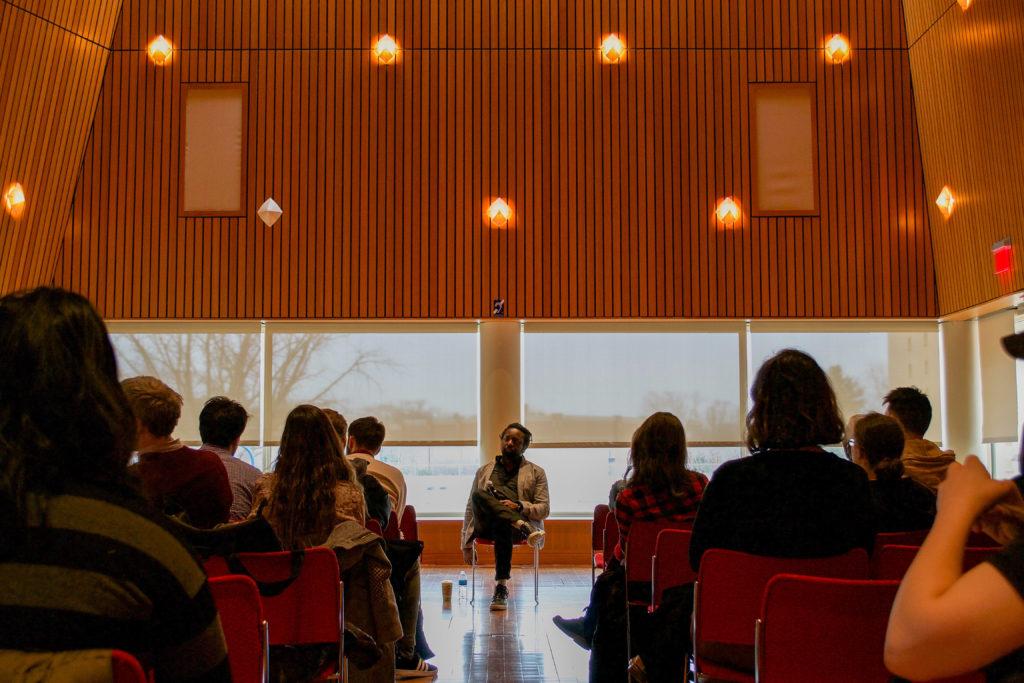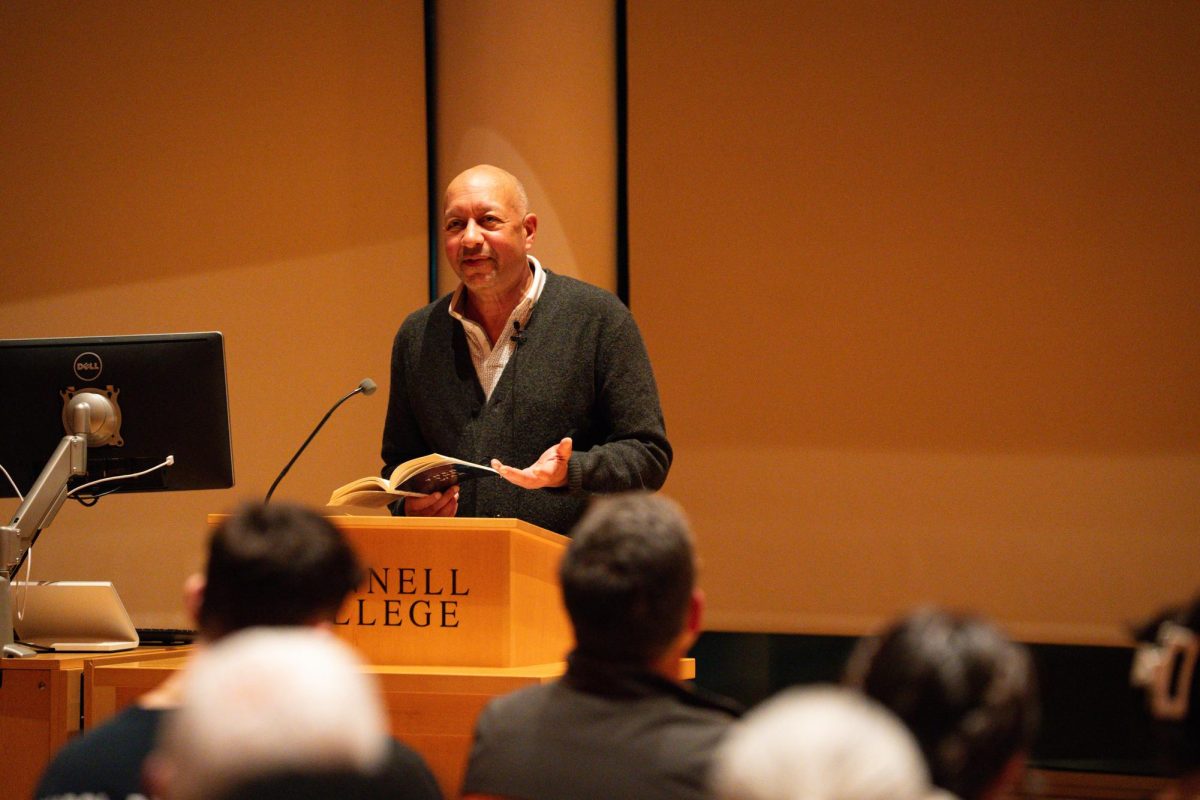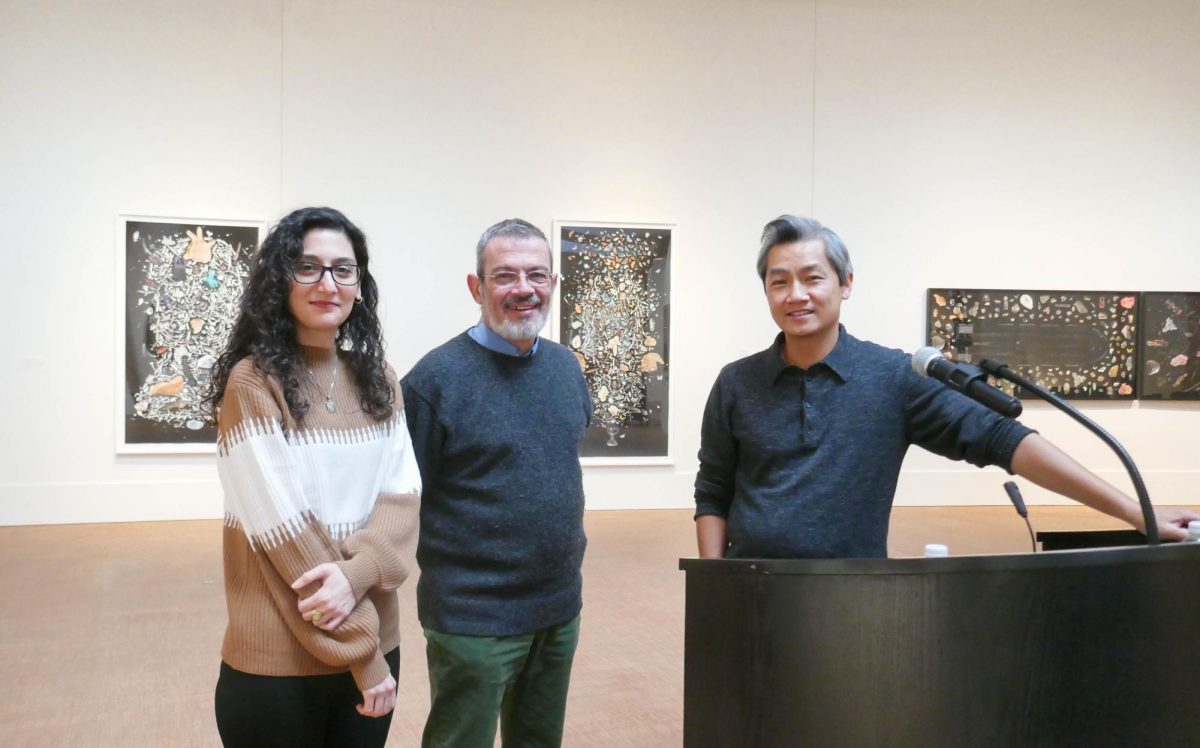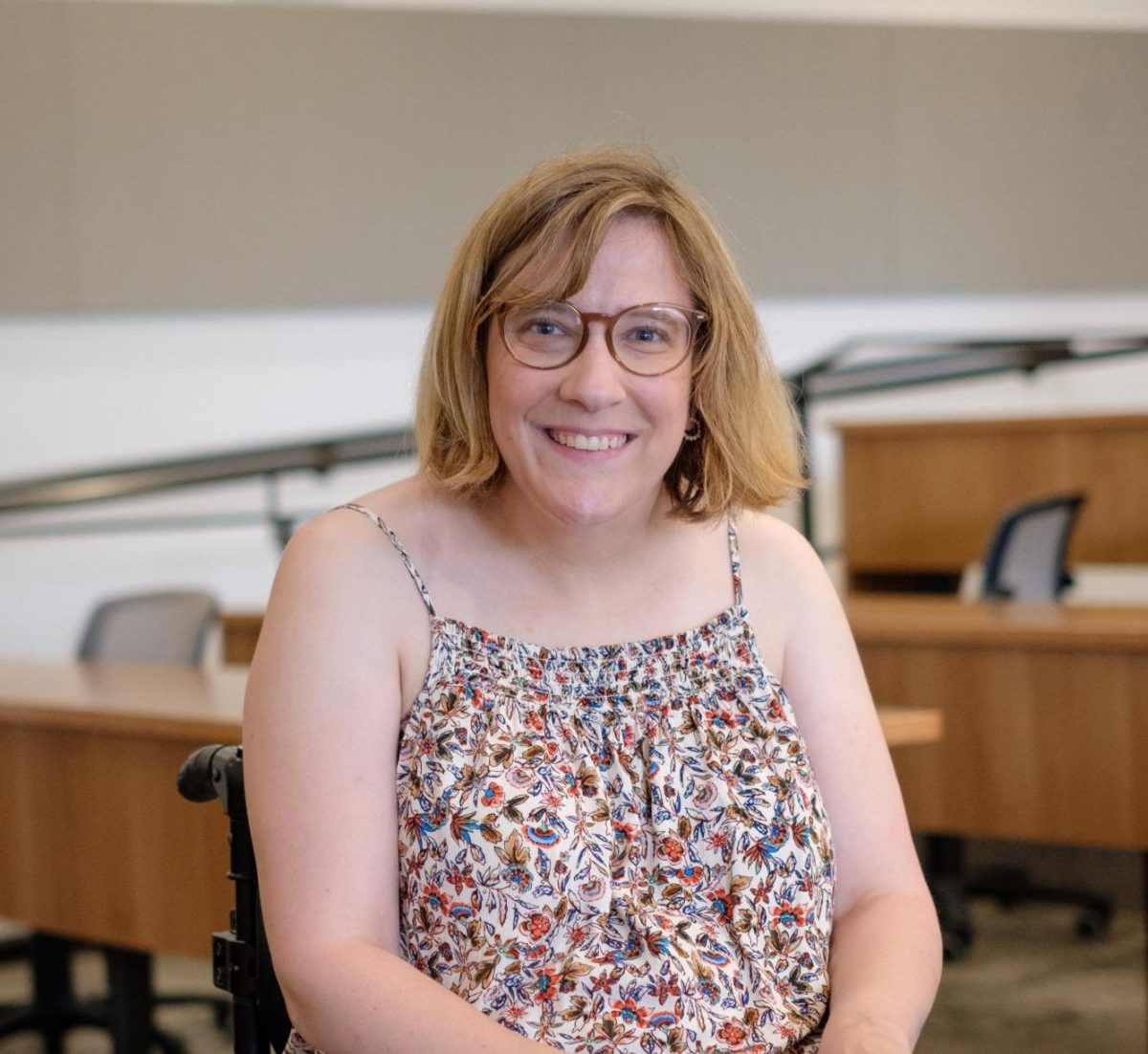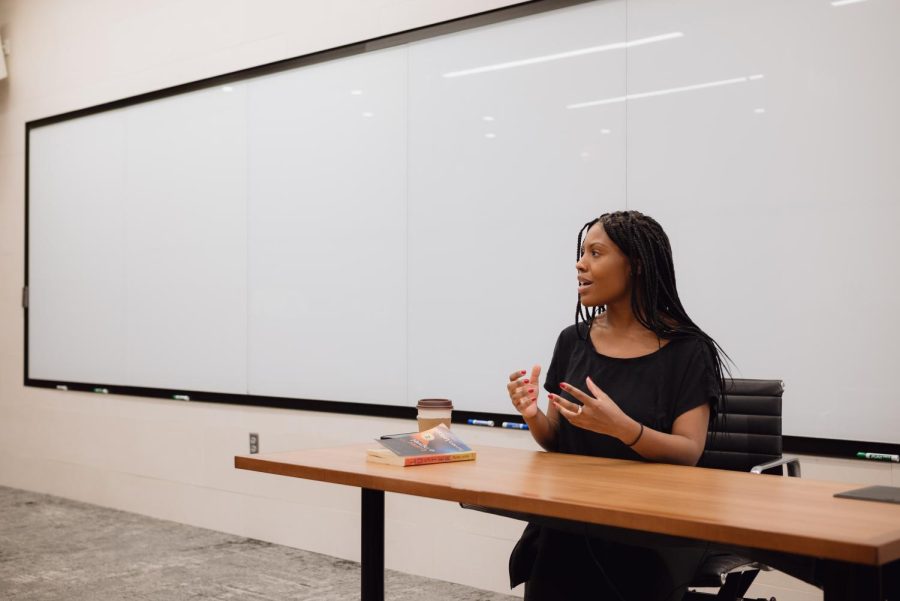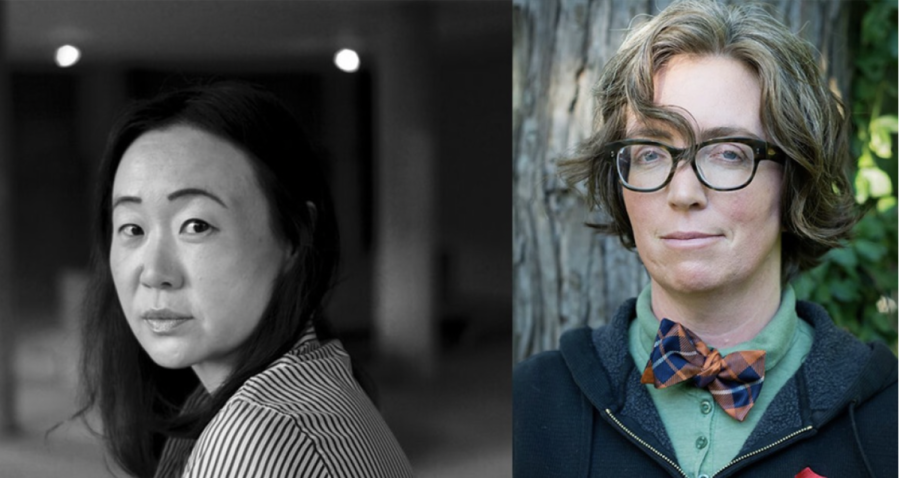Marlon James was this year’s distinguished author for Writers@Grinnell. His novel “A Brief History of Seven Killings” received the Man Booker Prize in 2015. The S&B’s Mayo Sueta sat down with him to talk about writing and reading.
The S&B: What inspired you to pursue writing?
Marlon James: I think what inspired me initially was reading novels and finally coming across novels that made me go, I wanna write this. Like, there are tons of books you read and go, That’s a nice story, but there are things you come across that make you go, No I wanna write, … I want to do for somebody else what that book, and in my case sometimes comics [did for me]…
Taking classes and just reading more authors and trying and failing and just realizing how important stories are … to people. And after a while, I also realized that it was the only thing that made me happy. … Even just for having done it. Even when I didn’t make a cent from it, I was more happy having written something than earning whatever money. … It’s almost like I woke up one day and realized, Oh crap, I’m a writer.
The S&B: Does your job teaching inform your writing in any way?
MJ: It affects my writing in that I’m always around creative people. And the great thing about teaching undergrads is that they’re just creating for creativity’s sake. Which if you’re … as old as me, you’re rarely doing. You’re thinking about audience, you’re thinking, Will this sell? You’re thinking, Who’s gonna read it? Whereas they’re just expressing and sometimes that’s a reminder to me [as to] why I’m doing this. It is art, too.
Also I learn from my students. … It was a student who came into my office one day, … crying because he was so tired of people linking metal illness to crime. Which is something that every cliché story does. … To look through his eyes and to see what he is seeing everyday … made me realize that I have to be more careful with how I create characters and I need to learn more, but I learned it from my students, I didn’t learn it from other writers.
The S&B: Why do you read?
MJ: Because I wanna have more than one life. … Terry Tempest Williams said that, she said that about writing, I say that about reading, I wanna have more than one life, I wanna have more than one adventure, I wanna be more than one person and I wanna experience other things including the bad things. … I wanna experience heartache, I wanna experience bigotry, I … would also wanna experience bliss and joy and family and I have a lot of that in my own life but … I think part of being human is letting these other stories in your life. … Reading books can change your life. Especially with someone like me, it’s …your first experience of the world. For some people it’s their only experience. … I, also on a very basic level, just love stories. I just love being told something or reading something and being transported to a whole other world which might as well be just like mine but not. And that in itself is super fantastic. You open a book and go, Where am I gonna go today?
The S&B: What is it like writing about Jamaica while living in the U.S.?
MJ: There are good things and bad things about it. The good thing is that you get perspective because you have distance and I don’t just write about Jamaica, I write about Jamaica in the past. … Some of them, like in my last book, I experienced it, but to a huge extent it’s stuff that I haven’t experienced, … stuff that I need perspective to write about. … The thing is you can also run the risk of being out of touch. I think people forget that. … Even though I am here [in the U.S], when I’m not in dialogue with Jamaica, I cannot write about it. So it’s a double-edged sword.
The S&B: I read that when you started writing “A Brief History of Seven Killings,” it started off as a story about one character. How did you develop it into a story with so many different perspectives?
MJ: Each character for a while wasn’t a new character in a novel, each character was a new novel. … For a long time, I didn’t think I was writing a multi-character novel. I thought I was writing these failed single character novels. … It wasn’t my idea that it was a multi-character novel, it was my friend Rachel’s idea. I had dinner with her, I was panicking, I don’t know whose story this is. And she said, Why do you think it’s one person’s story? And she said, Go back and read “As I Lay Dying.” And that was the big eureka moment. … You know, most of the turning points in my novels have always been some outside person says some random thing, and I go, Here we go.
The S&B: Who do you go to when you’re stuck?
MJ: My first defense when I’m stuck is usually reading. … You know if I’m stuck there are writers I can talk to … usually other writers — actually other artists. Because Rachel is a dancer. And most of the people I go to tend to be creative people who are actually aren’t writers. … How does a choreographer solve this problem? How does a musician solve this problem? And sometimes that can be a break through [that you haven’t even been] thinking about because you’ve been thinking too much like a writer.
The S&B: I read that your first book was rejected 78 times. Why did you keep with the book?
MJ: The thing is I didn’t keep with the book — I actually destroyed it. We’ll back track a little bit. I didn’t realize it was 78. … It’s not like I was counting. … It wasn’t until after a while I stopped to go, how many of these have I sent out? And that’s when it hit me that it was 78. So of course that hit me like a battering ram … like, damn, that many people said no. And actually I didn’t save the book, I got rid of it. I destroyed it. … I deleted it from every computer I could delete it from. … I was at a workshop and this writer demanded to see my work and I was like I don’t write books anymore, I’m not a writer, and everybody who was in the class was like, he wrote a novel he just doesn’t want to show you, and she says she’s not leaving Jamaica until she gets it, so I go scrambling to find this book that I deleted and I found it in an email outbox from years, years, years ago. … Two lessons from that: One, never destroy your work, and two, listen to people but believe in your work because you may come across a period in your life when you’re the only person who does. And sometimes people are right. But can 78 people be wrong? Yeah, 78 people can be wrong.

Marlon James answered questions about his writing and publishing process during the roundtable, and read from a few of his works during the reading. Photo by Elena Copell.


















































